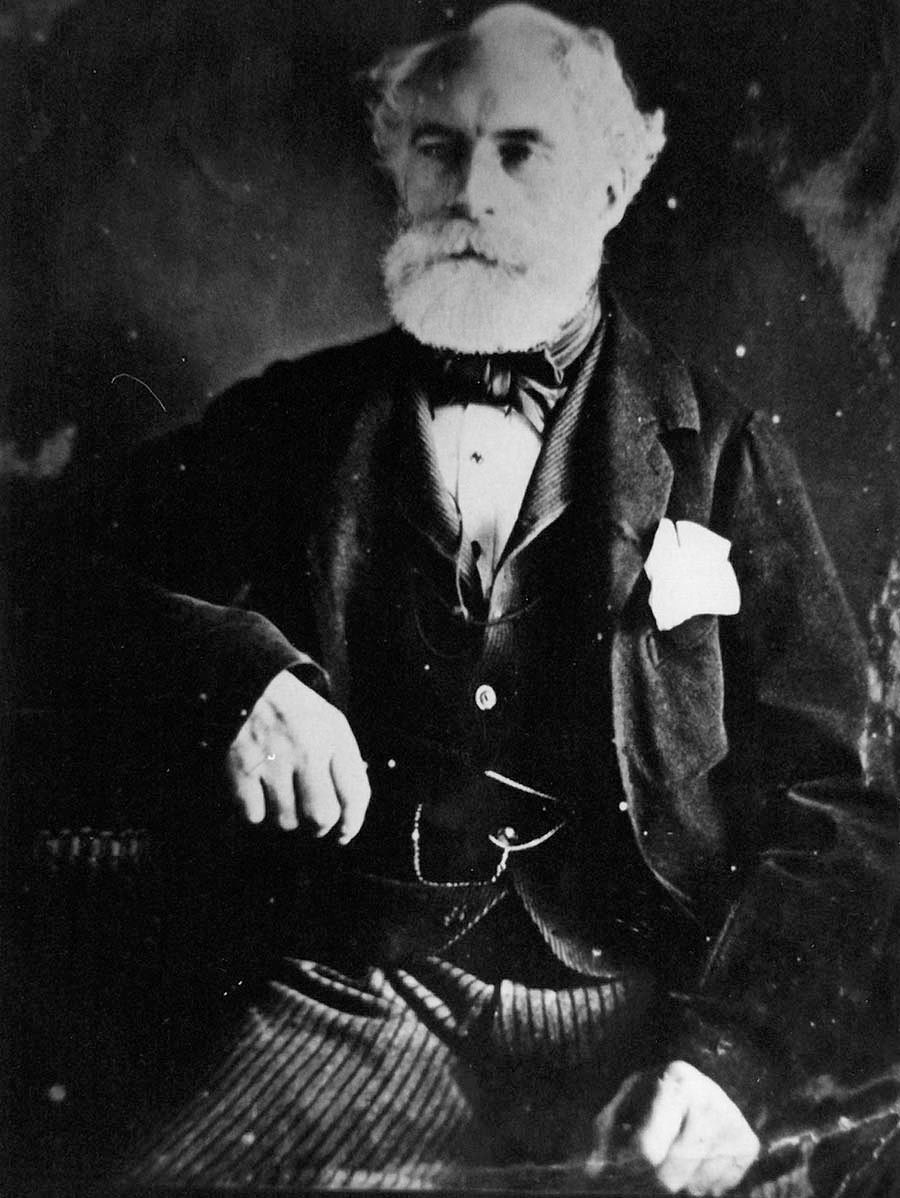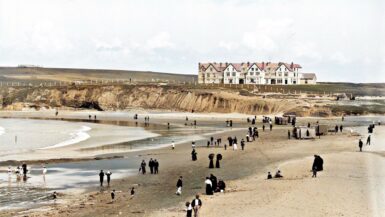William Sydney Clements, the 3rd Earl of Leitrim was an Anglo-Irish nobleman and notorious landlord. Born in 1806, he was educated in Sandhurst and served in Portugal for the British Army between 1826 and 1827. In 1831 he was promoted to captain. Following his father’s death he was promoted to Lutentant-Colonel and retired from the British Army.
After inheriting a substantial estate from his father (Nathanial Clements) in 1854 he gained a reputation as a controlling landlord and bullying tyrant. The estate included lands in Leitrim, Donegal, Kildare and Galway.
A reputation for cruelty
Lord Leitrim had a particular passion with improving the productivity of his land. He planted grasses near the Rossapenna Hotel in Downings, at significant cost, to help stop the build up of sand. He regularly evicted tenants and their families, sometimes paying for them to emigrate. If they refused to leave the land he would raise the rent, giving them no alternative but to leave. If tenants tried to improve their land or plant crops without his permission he would often destroy their homes or crops. This type of behaviour caused significant resentment in the areas he controlled. He showed no sympathy when evicting families and there are quite a number of ballads and songs lamenting his behaviour.
One story from Manorhamilton tells how a tenant farmer planted an acre of potatoes without permission. When the Lord noticed the field he immediately sent for the tenant and asked him ‘who gave you authority to turn sods on my land?’ The trembling man replied, ‘to feed my family’. Lord Leitrim replied, ‘I will be back at 12 o clock tomorrow, and have these sods tuned back, remove the potatoes and the manure and have the field cleaned the way you got it, I will then consider what I will do with you.”
Another story tells how a blacksmith was once fined for allowing tenants to heat themselves by a fire while waiting to pay their rent. Over the course of 20 years his tenants grew to hate his fiery and unpredictable behaviours. Only the parish priest of Fanad, Fr Boyle had the courage to denounce him from the altar.
A marked man…
By the 1860s there were a few attempts on his life. Furthermore, stories circulated of his immoral behaviour, and he gained a reputation for violating young girls. A young woman from Fanad, the daughter of one of his tenants, worked for him at his home and is believed to have been debauched by him. A few days later she was found drowned. This event may have led to his assassination.
On 2nd April 1878 his car was ambushed by 3 men and shot 10-11 times. He also received blows to the head from the muzzle of a gun which ensured his death.
Three men from Fanad are believed to have committed the murder, but were never convicted. One suspect, Michael Heraghty served some time in prison for the crime but died of typhus before he was convicted. 3,000 people attended his funeral who wore green rosettes, and 20 cars followed by 200 horsemen met his funeral procession as it entered Fanad.
One local story tells of how a policeman investigating the crime met a woman milking a cow and enquired if she knew of anything about the murder, and whether she noticed anything. She told him she did not, but perhaps he’d be best to ask Bessie (the cow) as she was there all day.
Lord Leitrim’s heir offered a £10,000 reward in return for identifying the killers, but this was never collected. The three men eventually became known as the Fanad Patriots.
Such was Lord Leitrim’s reputation, when the hearse arrived at St. Minchan’s Church, Dublin a crowd gathered and tried to seize the coffin, with the intention of throwing it into the River Liffey. Such was the disgust of his family towards him they decided to make the family vault in St. Minchen’s inactive after his death.







Excellent article. We must thank the many who fought to get rid of tyrannical landlordism, the Land War activists, the Land League, Davitt and Parnell and the secret agrarian societies before then. There is so much revisionism of Irish history nowadays which shows that those who died for the freedom we enjoy today, are not appreciated by everyone. This article tells the story from the viewpoint of the long suffering tenant who didn’t eat enough so as to be able to pay the rackrent. Thanks.